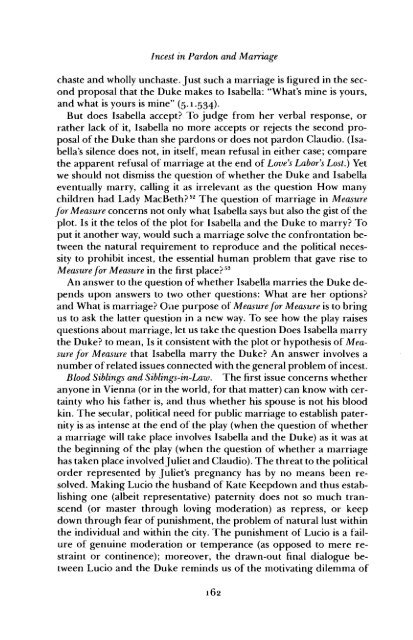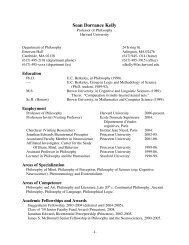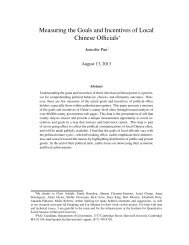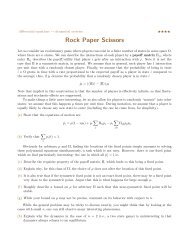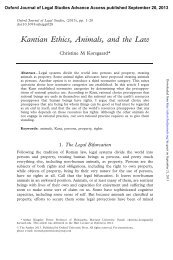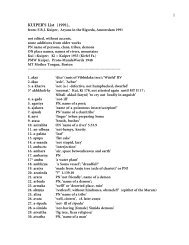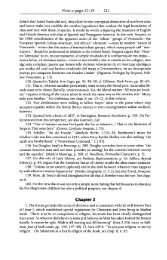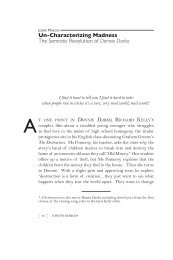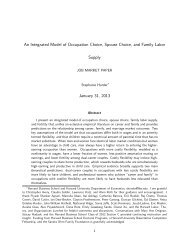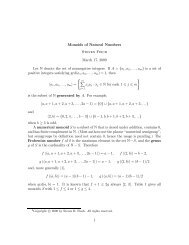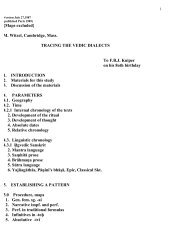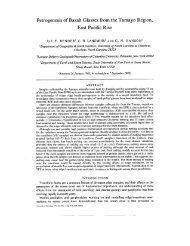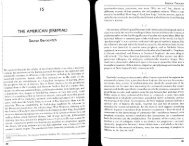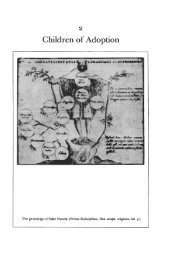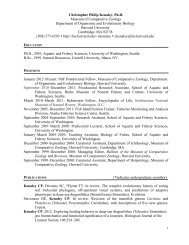Incest in Pardon and Marriage - People Fas Harvard
Incest in Pardon and Marriage - People Fas Harvard
Incest in Pardon and Marriage - People Fas Harvard
You also want an ePaper? Increase the reach of your titles
YUMPU automatically turns print PDFs into web optimized ePapers that Google loves.
<strong>Incest</strong> <strong>in</strong> <strong>Pardon</strong> <strong>and</strong> Marriuge<br />
chaste <strong>and</strong> wholly unchaste. Just such a marriage is figured <strong>in</strong> the second<br />
proposal that the Duke makes to Isabella: "What's m<strong>in</strong>e is yours,<br />
<strong>and</strong> what is yours is m<strong>in</strong>e" (5.1.534).<br />
But does Isabella accept? To judge from her verbal response, or<br />
rather lack of it, Isabella no more accepts or rejects the second proposal<br />
of the Duke than she pardons or does not pardon Claudio. (Isabella's<br />
silence does not, <strong>in</strong> itself, mean refusal <strong>in</strong> either case; compare<br />
the apparent refusal of marriage at the end of Love's Labor's Lost.) Yet<br />
we should not dismiss the question of whether the Duke <strong>and</strong> Isabella<br />
eventually marry, call<strong>in</strong>g it as irrelevant as the question How many<br />
children had Lady Ma~Beth?~~ The question of marriage <strong>in</strong> Measure<br />
for Measure concerns not only what Isabella says but also the gist of the<br />
plot. Is it the telos of the plot for Isabella <strong>and</strong> the Duke to marry? To<br />
put it another way, would such a marriage solve the confrontation between<br />
the natural requirement to reproduce <strong>and</strong> the political necessity<br />
to prohibit <strong>in</strong>cest, the essential human problem that gave rise to<br />
Measure for Measure <strong>in</strong> the first place?59<br />
An answer to the question of whether Isabella marries the Duke depends<br />
upon answers to two other questions: What are her options?<br />
<strong>and</strong> What is marriage? One purpose of Measure for Measure is to br<strong>in</strong>g<br />
us to ask the latter question <strong>in</strong> a new way. To see how the play raises<br />
questions about marriage, let us take the question Does Isabella marry<br />
the Duke? to mean, Is it consistent with the plot or hypothesis of Measure<br />
for Measure that Isabella marry the Duke? An answer <strong>in</strong>volves a<br />
number of related issues connected with the general problem of <strong>in</strong>cest.<br />
Blood Sibl<strong>in</strong>gs <strong>and</strong> Sibl<strong>in</strong>gs-<strong>in</strong>-Law. The first issue concerns whether<br />
anyone <strong>in</strong> Vienna (or <strong>in</strong> the world, for that matter) can know with certa<strong>in</strong>ty<br />
who his father is, <strong>and</strong> thus whether his spouse is not his blood<br />
k<strong>in</strong>. The secular, political need for public marriage to establish paternity<br />
is as <strong>in</strong>tense at the end of the play (when the question of whether<br />
a marriage will take place <strong>in</strong>volves Isabella <strong>and</strong> the Duke) as it was at<br />
the beg<strong>in</strong>n<strong>in</strong>g of the play (when the question of whether a marriage<br />
has taken place <strong>in</strong>volved Juliet <strong>and</strong> Claudio). The threat to the political<br />
order represented by Juliet's pregnancy has by no means been resolved.<br />
Mak<strong>in</strong>g Lucio the husb<strong>and</strong> of Kate Keepdown <strong>and</strong> thus establish<strong>in</strong>g<br />
one (albeit representative) paternity does not so much transcend<br />
(or master through lov<strong>in</strong>g moderation) as repress, or keep<br />
down through fear of punishment, the problem of natural lust with<strong>in</strong><br />
the <strong>in</strong>dividual <strong>and</strong> with<strong>in</strong> the city. The punishment of Lucio is a failure<br />
of genu<strong>in</strong>e moderation or temperance (as opposed to mere restra<strong>in</strong>t<br />
or cont<strong>in</strong>ence); moreover, the drawn-out f<strong>in</strong>al dialogue between<br />
Lucio <strong>and</strong> the Duke rem<strong>in</strong>ds us of the motivat<strong>in</strong>g dilemma of


